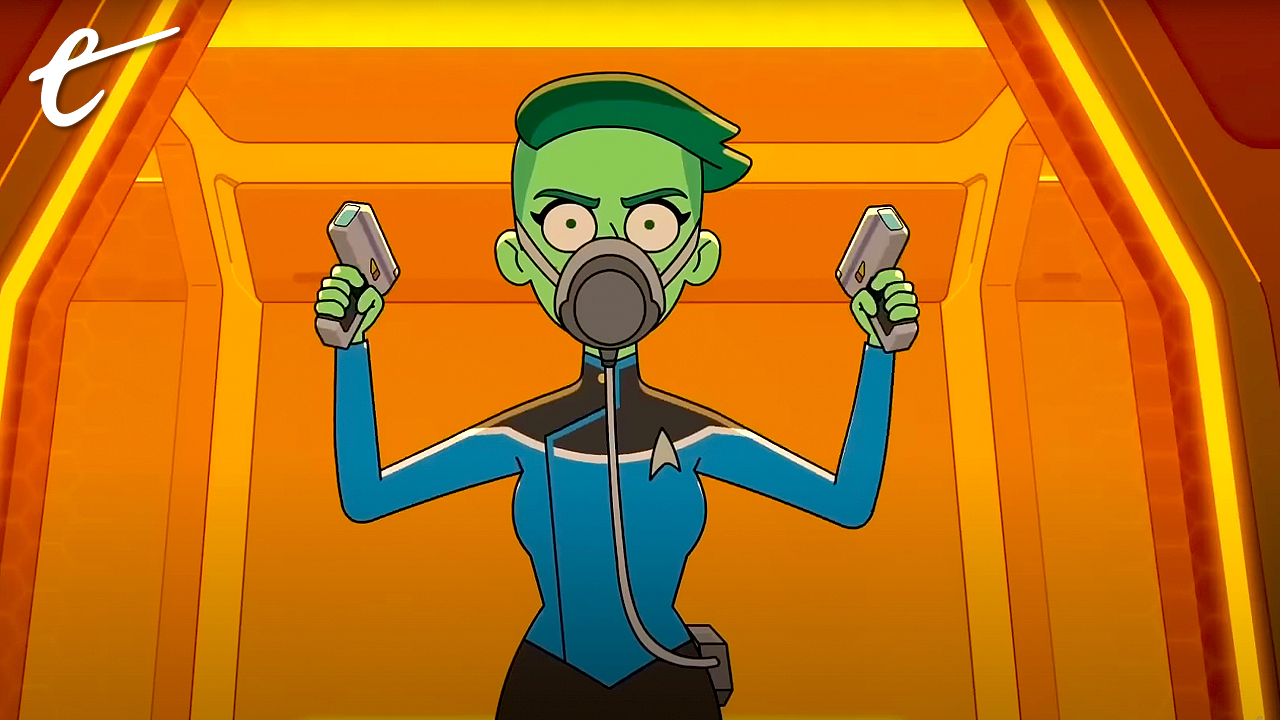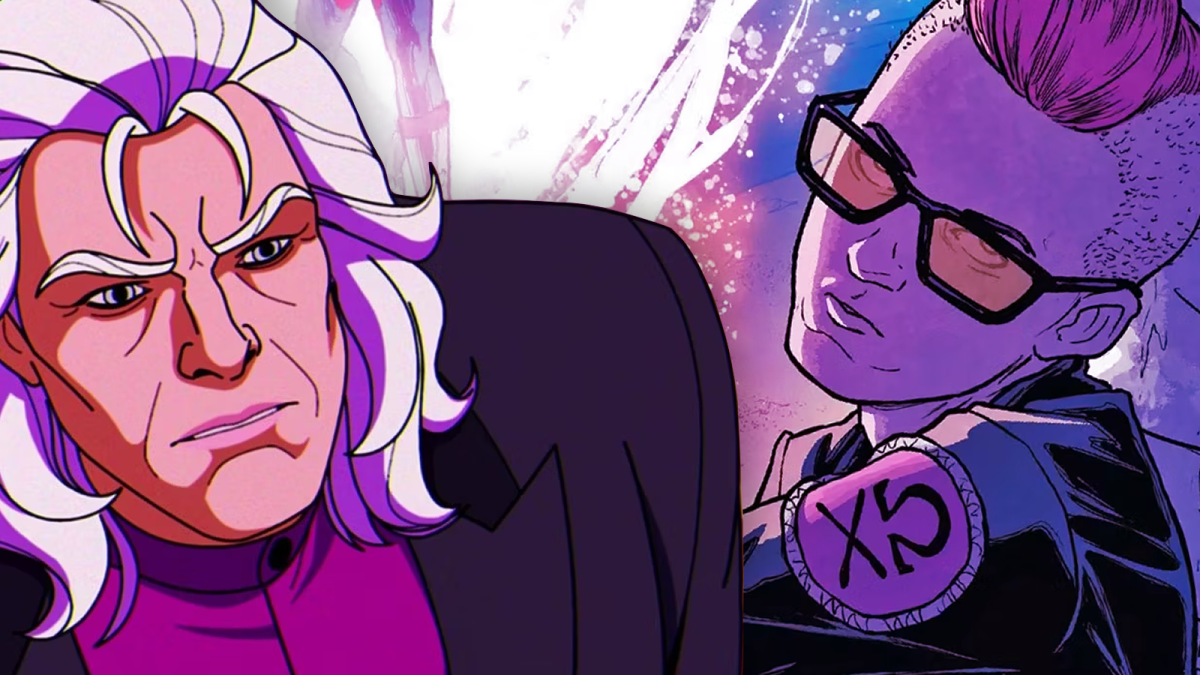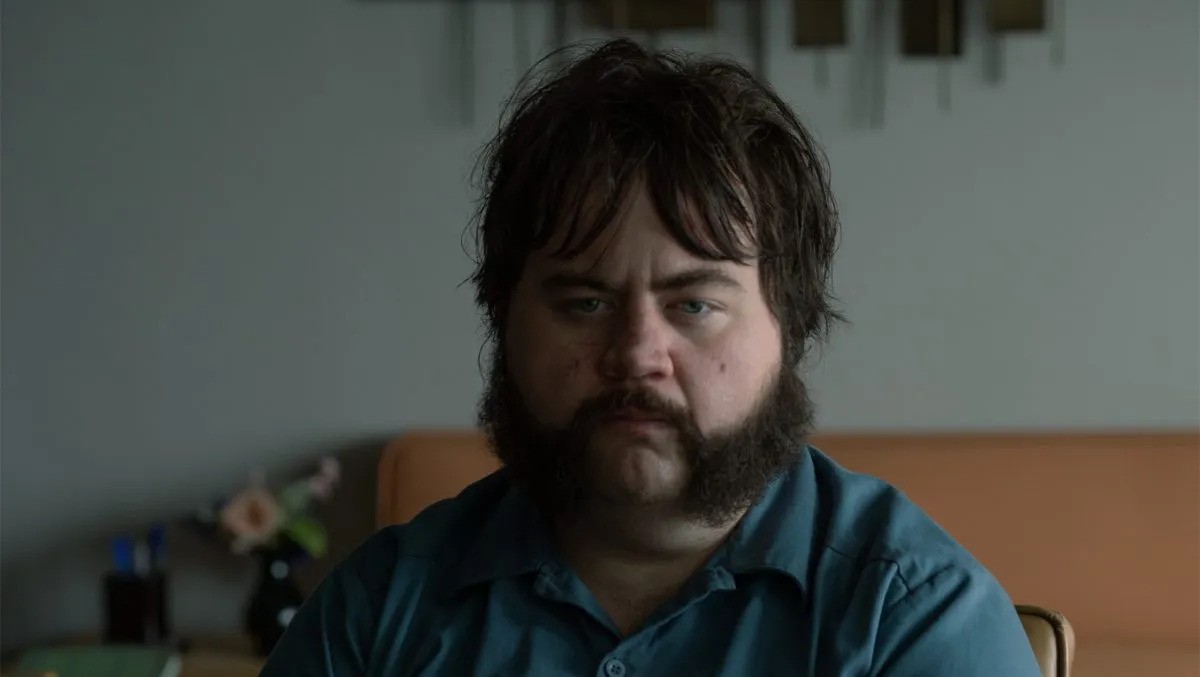This discussion and review contains spoilers for Star Trek: Lower Decks season 4, episode 4, “Something Borrowed, Something Green,” streaming now on Paramount+.
As Star Trek: Lower Decks continues through its fourth season, “Something Borrowed, Something Green” allows the series to return to one of its recurring interests.
Many Star Trek shows have an alien species that they tend to focus on and develop. On the original Star Trek, it was the Romulans and the Klingons. On Star Trek: The Next Generation, it was the Borg. Star Trek: Deep Space Nine had the Ferengi, the Cardassians, the Bajorans, and the Dominion. Star Trek: Voyager introduced the Kazon, the Vidiians, the Hirogen, the Malon, Species 8472, and returned to the Borg. Star Trek: Picard initially focused on the Romulans and the Borg. Star Trek: Strange New Worlds even has the Gorn.
In the show’s first two seasons, it looked like Lower Decks might focus on the Pakleds, the alien species introduced in “Samaritan Snare.” There is also perhaps an argument to be made for the show’s more general fixation on artificial intelligence, with characters like Badgey (Jack McBrayer), Peanut Hamper (Kether Donohue), and AGIMUS (Jeffrey Combs). However, as the show settles into its fourth season, it seems like Lower Decks has decided to focus on the Orions.
On one hand, it is interesting that it has taken a Star Trek show this long to truly delve into Orion culture. After all, the Orions were among the very first Star Trek aliens, appearing in the unaired pilot, “The Cage.” Owing to the use of recycled footage in “The Menagerie” and the appearance of Marta (Yvonne Craig) in “Whom Gods Destroy,” there is a sense that the Orions are a foundational part of Star Trek’s iconography. The “green-skinned alien babe” is a cliché for a reason.
On the other hand, the Orions were something of a pulpy science fiction cliché. By the time The Next Generation was on the air, one of Gene Roddenberry’s “cardinal rules” banned space pirates from the franchise. There were exceptions, of course. The Orions appeared in Star Trek: Enterprise episodes like “Borderland” and “Bound.” However, they were largely treated as throwbacks to an outdated mode of science fiction; the trashy adventure magazines and cheap paperbacks.
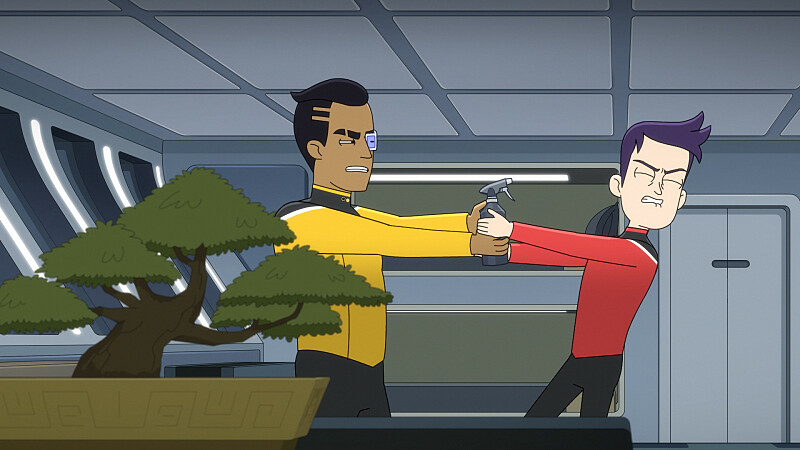
L-R Eugene Cordero as Rutherford and Jack Quaid as Boimler appearing in episode 4, season 4 of Lower Decks streaming on Paramount+, 2023. Photo Credit: Paramount+
It didn’t help that the Orions were defined as a collection of unfortunate cultural stereotypes. The seductive Orion Slave Girls evoked “the classic Orientalist image of the exotic sexuality of Eastern women.” This subtext was never buried particularly deep. In “Whom Gods Destroy,” Marta performs her seductive belly dance to a piece of music that composer Alexander Courage helpfully titled “Arab Hootch Dance.” As such, it makes sense that Star Trek would stay away from the Orions.
When the Orion Syndicate appeared in Deep Space Nine, it was a diverse organization. It included Idanian net-girls like Arissa (Dey Young) in “A Simple Investigation” and human operatives like William Bilby (Nick Tate) in “Honor Among Thieves.” Notably, the green-skinned Orions returned as the franchise embraced nostalgia, with the aforementioned Enterprise episodes and Gaila (Rachel Nichols) in J.J. Abrams’ Star Trek. They also appeared in Discovery and Strange New Worlds.
However, through the character of D’Vana Tendi (Noël Wells), Lower Decks has engaged in an interesting discussion about these classic Star Trek aliens. Over its four seasons, Lower Decks has wrestled with the franchise’s historical approach to the Orions. In some ways, this is the perfect fodder for the first Star Trek series to position itself as a comedy. Lower Decks should be able to call out some of the franchise’s historical blind spots and missteps.
Throughout Lower Decks, Tendi has pushed back on the assumptions that many of her co-workers make about Orions. In “Crisis Point,” she expressed discomfort at Mariner’s (Tawny Newsome) decision to cast her as a “savage warrior queen who comes from a long line of thieving Orion pirates.” In “Hear All, Trust Nothing,” Tendi found herself frustrated with a fellow Orion named Mesk (Adam Pally), who lived down to the worst stereotypes of Orions.
So it makes sense that Lower Decks would finally send Tendi back to her family on Orion. Structurally, “Something Borrowed, Something Green” is a classic Lower Decks episode. It takes a familiar Star Trek narrative template and fuses it with a sitcom sensibility. In this case, Tendi’s uncomfortable family visit recalls similar trips for Ezri Dax (Nicole de Boer) in “Prodigal Daughter” and T’Pol (Jolene Blalock) in “Home.” The family wedding and the trip home is also a classic sitcom setup.
The Orions are the perfect fodder for Lower Decks. The Orions are a Star Trek species that has historically been defined in a way that is comically one-dimensional. They are sexy green-skinned space pirates. They have never been developed like the Klingons or the Cardassians. Every appearance has been filtered through that basic framework. Even in the cold open of “Something Borrowed, Something Green,” the support crew on the Orion ship still define themselves as “pirate-adjacent.”
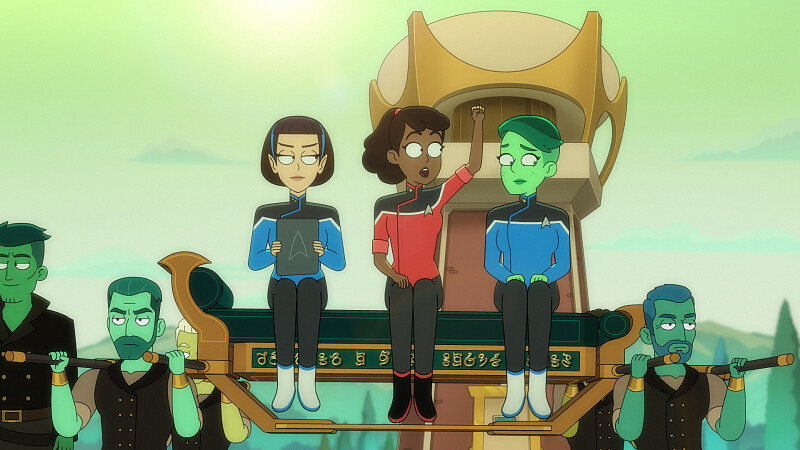
L-R Gabrielle Ruiz as T’Lyn, Tawny Newsome as Beckett Mariner and Noel Wells as Tendi appearing in episode 4, season 4 of Lower Decks streaming on Paramount+, 2023. Photo Credit: Paramount+
So, befitting a heightened and self-aware comedy show, Lower Decks takes a step back and uses the Orions to interrogate a broader concept: “the planet of hats.” That is a term for a common phenomenon in science fiction — an entire alien culture built around a single unifying idea. Star Trek has a number of these, often depending on the writing. The Klingons’ hat is frequently honor. The Ferengi’s hat is capitalism. The Hirogen’s hat is hunting. The Orions’ hat is piracy.
With the Orions, Lower Decks returns repeatedly to the idea of racial identity as performance, often one for the benefit of outsiders. Like Worf (Michael Dorn) on The Next Generation and Deep Space Nine, Mesk was raised by humans and so compensates by over-performing his heritage. On the Strange New Worlds crossover episode “Those Old Scientists,” Captain Harr Caras (Greg Bryk) wants nothing more than to be remembered as a scientist rather than a pirate.
In “Something Borrowed, Something Green,” Tendi clearly doesn’t want to be defined by the stereotypes of her Orion culture. Mariner is thrilled at the news that they’ll be visiting Orion. “Wedding? Sister? Parents? Tendi, I’m sorry, I’m freaking out. This is more backstory than I’ve ever been able to get out of you.” T’Lyn (Gabrielle Ruiz) accompanies Tendi and Mariner to Orion, to take notes. As Mariner explains, “I mean, nobody knows anything about your culture.”
That culture is based around performance. Tendi returns home to discover that her sister D’Erika has been abducted. Tendi immediately suspects this is just pageantry, as bridal kidnappings are common. Indeed, their mother Shona points out that such kidnappings have a place in the wedding schedule. While it quickly becomes clear that D’Erika’s disappearance is not a ritual bridal kidnapping, it is eventually revealed that she staged her own kidnapping to attract Tendi’s attention.
Lower Decks leans into the inherent absurdity of an entire culture based around sexy space pirates. Tendi’s investigations bring the trio to dive bars and “hump dungeons” populated by “’mone heads” who are “hopped up on the stink.” Lower Decks doesn’t really judge Orion culture. Ultimately, it’s T’Lyn’s voyeuristic obsession with it that demands resolution. T’Lyn discards her notes at the climax, accepting that Tendi is not a lab specimen. It’s more a critique of the tendency to exoticize alien cultures than a study of an exotic alien culture.
The episode doesn’t try to “solve” or “account” for Orion culture. Instead, it focuses on Tendi’s anxious relationship to it. “I loved pretending I was off-planet, exploring space, doing anything other than pirating,” she explains of her childhood. Later, she tells Mariner and T’Lyn, “I just hate that you guys had to see the real me.” She is revealed as “the Mistress of the Winter Constellations” and “the Tip of the Moonlit Blade.” In her own words, Tendi is “the most pirate-y someone can be.”
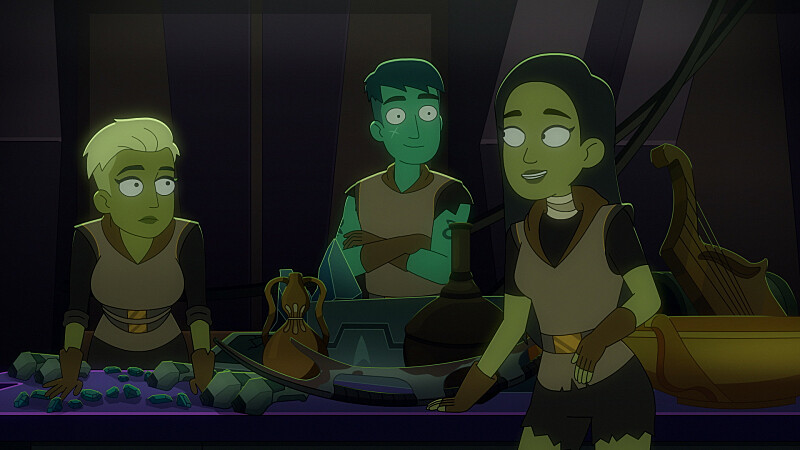
Kari Wahlgren as L’Kar, Fred Tatasciore as Risik and Vanessa Marshall as D’Bora in Episode 4, season 4 of Lower Decks streaming on Paramount+, 2023. Photo Credit: Paramount+
Ultimately, T’Lyn argues that an individual is not defined by their cultural background, advising Tendi, “You are who you choose to be.” The problem is not what Tendi chooses to be, but how others choose to see her. In its gentle and loving way, Lower Decks is having a bit of fun at the expense of the broad brush with which Star Trek paints some of its alien cultures. This carries over into the subplot, which focuses on Boimler (Jack Quaid) and Rutherford (Eugene Cordero) as roommates, building off the end of “I Have No Bones Yet I Must Flee.”
When the pair’s relationship as roommates (“Brutherford”) becomes strained, they discover an unlikely mode of reconciliation: playing Mark Twain on the holodeck. As “Twain Twins,” the two can work through their complicated feelings in a safe environment. So, when Captain Freeman (Dawnn Lewis) faces a diplomatic challenge with Chalnoth Captain Kokar (Fred Tatasciore) and needs to “find common ground without any lingering resentment,” Boimler and Rutherford have a suggestion.
Again, Lower Decks is having fun with the franchise’s narrative conventions, in particular the idea of universal applicability. Characters in Star Trek will often use metaphors or anecdotes to give advice, applying aphorisms or personal experiences as universal truths. “Something Borrowed, Something Green” pushes that idea to its logical extreme. Boimler and Rutherford solved their conflict by dressing up as Mark Twain on the holodeck, therefore every conflict can be solved that way.
Unsurprisingly, Freeman isn’t able to appease Kokar with “homespun aphorisms about compromise.” As Rutherford concedes, “Shockingly, it’s not the universal problem-solver we thought it was.” This is both a clever subversion of one of the franchise’s favorite narrative devices and an insightful lesson for the characters to learn (or refuse to learn) on its own terms. As with the episode’s riff on the Orions, there is just a little bit of an edge to this. It’s gently poking at the franchise’s conventions.
“Something Borrowed, Something Green” is the season’s fourth consecutive solid episode. While the fourth season of Lower Decks hasn’t hit a home run yet, the show continues to do what it has always done with its trademark wit and playfulness. It’s smart, playful, enjoyable Star Trek. What more could audiences want?

